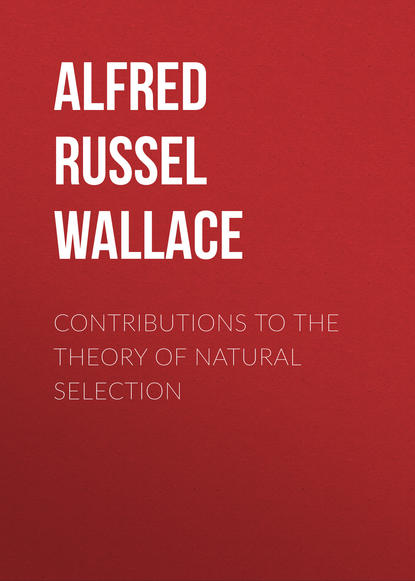По всем вопросам обращайтесь на: info@litportal.ru
(©) 2003-2024.
✖
Contributions to the Theory of Natural Selection
Автор
Год написания книги
2019
Настройки чтения
Размер шрифта
Высота строк
Поля
Polarity, Forbes’ theory of, 17 (#x1_x_1_i253), 45 (#x2_pgepubid00024).
Polymorphism, 145 (#x4_x_4_i44);
illustration of, 157 (#x4_x_4_i52).
Population of species, law of, 28 (#x2_x_2_i14);
does not permanently increase, 29 (#x2_x_2_i18);
not determined by abundance of offspring, 29 (#x2_x_2_i18);
checks to, 30 (#x2_x_2_i18);
difference in the case of cats and rabbits explained, 32 (#x2_x_2_i20).
Prevision, a case of, 122 (#x4_x_4_i12).
Prioniturus, 196 (#x6_x_6_i10).
Protection, various modes in which animals obtain it, 69 (#x3_x_3_i4)-71 (#x3_x_3_i8), 258 (#x7_x_7_i76);
greater need of, in female insects and birds, 113 (#x4_x_4_i2).
Protective colouring, theory of, 65 (#x2_x_2_i69).
Psittaci (Parrots), sexual colouring and nidification of, 242 (#x7_x_7_i26).
Pterosauria, 298 (#x8_pgepubid00098).
Ptychoderes, 94 (#x3_x_3_i37).
RACES, or subspecies, 160 (#x4_x_4_i57);
of man, origin of, 319 (#x9_x_9_i28).
Redbreast and woodpigeon, protective colouring of, 53 (#x2_x_2_i54), 54 (#x2_x_2_i56).
Representative groups, 9 (#x1_x_1_i242);
of Trogons, butterflies, &c., 12 (#x1_x_1_i247).
Reptiles, protective colouring of, 54 (#x2_x_2_i56).
Rhamphastidæ, sexual colouring and nidification of, 242 (#x7_x_7_i26).
Rhinoceros, 299 (#x8_x_8_i45).
River system, as illustrating self-adaptation, 276 (#x8_x_8_i16).
Roses, Mr. Baker on varieties of, 165 (#x5_x_5_i3).
Rudimentary organs, 23 (#x2_x_2_i3).
SALVIN, Mr. Osbert, on a case of bird mimicry, 107 (#x3_x_3_i58).
Saturnia pavonia-minor, protective colouring of larva of, 63 (#x2_x_2_i67).
Satyridæ, probable means of protection of, 176 (#x5_x_5_i28).
Sauropterygia, 299 (#x8_x_8_i45).
Savages, why they become extinct, 319 (#x9_x_9_i28);
undeveloped intellect of, 339 (#x9_x_9_i58), 341 (#x9_x_9_i60);
intellect of, compared with that of animals, 341 (#x9_x_9_i60), 343 (#x9_x_9_i62);
protect their backs from rain, 346 (#x9_x_9_i68).
Scansorial birds, nests of, 238 (#x7_x_7_i11).
Scaphura, 98 (#x3_x_3_i43).
Scissirostrum, 165 (#x5_x_5_i3).
Scopulipedes, brush-legged bees, 91 (#x3_x_3_i34).
Scudder, Mr., on fossil insects, 301 (#x8_x_8_i47).
Scutelleridæ, mimicked by Longicorns, 96 (#x3_x_3_i39).
Sesia bombiliformis, 90 (#x3_x_3_i34).
Sesiidæ, mimic Hymenoptera, 90 (#x3_x_3_i34).
Sexes, comparative importance of, in different classes of animals, 111 (#x4_x_4_i1);
diverse habits of, 156 (#x4_x_4_i52).
Sexual selection, 156 (#x4_x_4_i52);
its normal action to develop colour in both sexes, 247 (#x7_x_7_i51);
among birds, 283 (#x8_x_8_i24).
Sidgwick, Mr. A., on protective colouring of moths, 62 (#x2_x_2_i66).
Simocyonidæ, 300 (#x8_x_8_i45).











